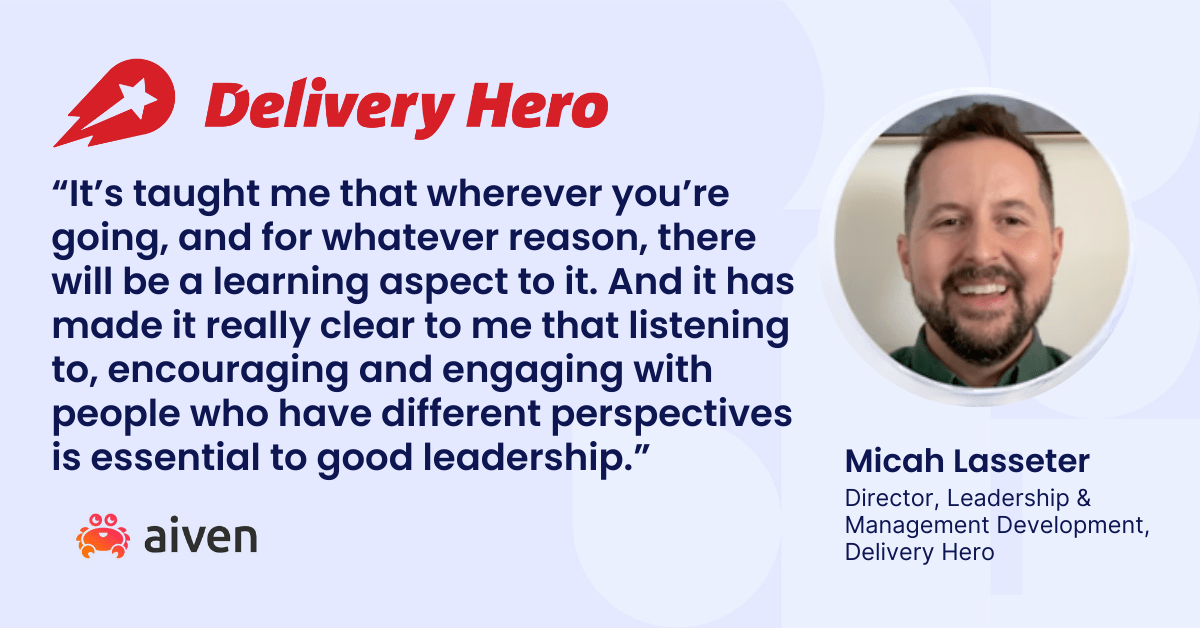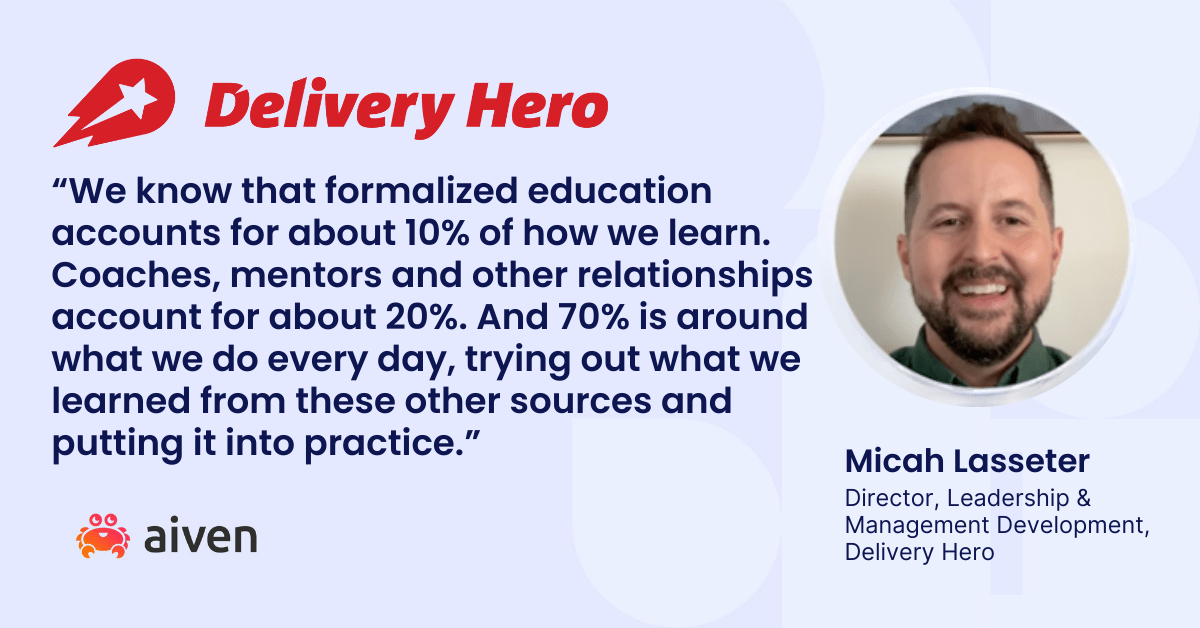Micah Lasseter, Delivery Hero: The Link Between Leadership, Learning and Diversity
Discover how Micah Lasseter, Director of Leadership and Management Development at Delivery Hero is creating a link between leadership, learning and diversity.
Florian Engel
|RSS FeedWe’ve all heard the old saying that travel broadens the mind. But Micah Lasseter, Director of Leadership and Management Development at Delivery Hero can confirm that it is absolutely true. He’s also clear that in today’s businesses, which are dependent on data and developers, having a broad and inclusive mindset is a real success factor.
Lasseter has more than 15 years of experience working with global organizations, nonprofits and universities on leadership coaching, strategic learning and even curriculum design. He has an enviable track record of success when it comes to linking a business’s goals with the learning needs of its teams — as the international success of Delivery Hero, one of our customers, suggests.
Before moving to his current post in Berlin, Lasseter worked in places like Amsterdam and New York, and he has seen many different work cultures at close range. “International experiences have definitely influenced my own approach to leadership,” he says.
“It’s taught me that wherever you’re going, and for whatever reason, there will be a learning aspect to it. And it has made it really clear to me that listening to, encouraging and engaging with people who have different perspectives is essential to good leadership.”
Diversity is more than a mission statement
Lasseter is acutely conscious that the technology industry often lacks those different perspectives and needs greater diversity within. It’s a view we share at Aiven. As an industry, we could be missing out on different experiences, innovative thinking and creativity, and creating new products and services that don’t reach their full potential as a result.
Often, when Lasseter speaks to leaders who are looking to recruit more new people, they tell him that they would love to make the team more diverse, but all the available senior talent essentially looks just like them.
“I want to push back against that idea,” he says. “As leaders, it’s part of our role to find and build up that talent. It’s not easy, obviously, but it’s something that we need to be proactive about and create a strategy for. For example, if you’re hiring to achieve a medium-term goal, then keep roles open a bit longer in order to find that unique but unrepresented talent.”
There are other practical ways to make sure that diversity is more than just words in a mission statement. “It’s a global issue. There are examples of companies that are really nurturing inclusive leadership that we can all learn from,” he says and points out that leaders should also have the confidence to ask for feedback on their performance in this area. “Getting that awareness can be really helpful. It’s a really important learning journey.”
Fireside Chat between our CEO, Oskari Saarenmaa and Micah Lasseter, Director of Leadership and Management Development, Delivery HeroOpen, accessible and inclusive technology platforms
In addition to his own experiences, Lasseter’s approach to learning and to leadership is also informed by academic research. He is due to complete a doctorate in adult learning, and his evidence shows that the best forms of training empower people to be at the driver's seat of their own learning.
“I'm a big believer in the 70/20/10 model,” he says. “We know that formalized education accounts for about 10% of how we learn. Coaches, mentors and other relationships account for about 20%. And 70% is around what we do every day, trying out what we learned from these other sources and putting it into practice.”
This is where technology has a clear role to play. It helps when companies have in place a technology platform that is itself open, accessible and inclusive. For example, one of the advantages of implementing open source software and making it available for everyone to use and collaborate on is that it helps create the learning environment that Lasseter advocates. It’s also a way of opening up access to new technologies so more people can get involved in the development of new — and inclusive — commercial products.
Inclusive solutions to big challenges
It could also help to address some of the bigger challenges that we face as a society.
To give one example, Lasseter is also investigating the use of AI in areas like gamification and simulations of education programs that can bring learning to life. “Going back to the 10/20/70 concept, I think there could be a really interesting role for AI in the hands-on 70% of learning programs. It’s amazing what we can learn about our skills and strengths when simulating a climb up Mount Everest — and it can be a lot more fun and memorable way of learning,” he says.
But good AI is dependent on good input data. That too has to be representative of a broad user base, and having a broad developer base is one way of achieving that.
And then there’s the other big challenge that leaders currently face — improving sustainability and implementing ESG policies that make a real difference. Again for companies like Delivery Hero, it’s getting the right infrastructure and clear leadership.
The cloud certainly contributes to a more efficient infrastructure than on-premises data centers, for example, and most hyperscalers are working on making them even more efficient. That helps ensure that daily individual actions make a difference – within an organizational framework and expectations set by leaders who understand all aspects of their business’s impact.
There is a common theme in all these areas. Greater inclusivity, more sustainability and use of open source technologies all present opportunities to connect within and across industries, to find what is working and then build it into the corporate strategy. As Lasseter says: “There has never been a more important time to learn about good leadership and to put it into practice.”
And at Aiven, we couldn’t agree more.
Stay updated with Aiven
Subscribe for the latest news and insights on open source, Aiven offerings, and more.


